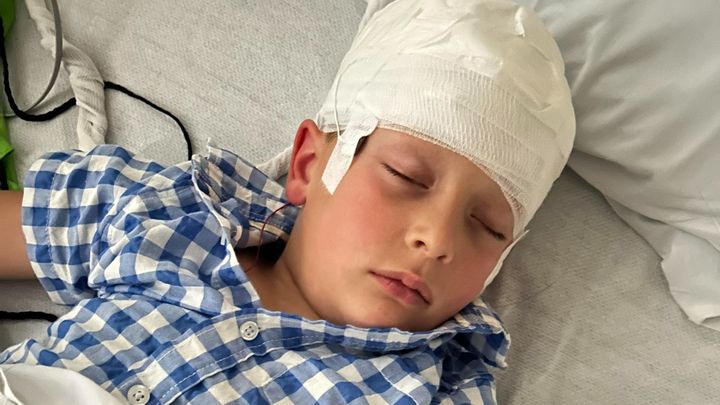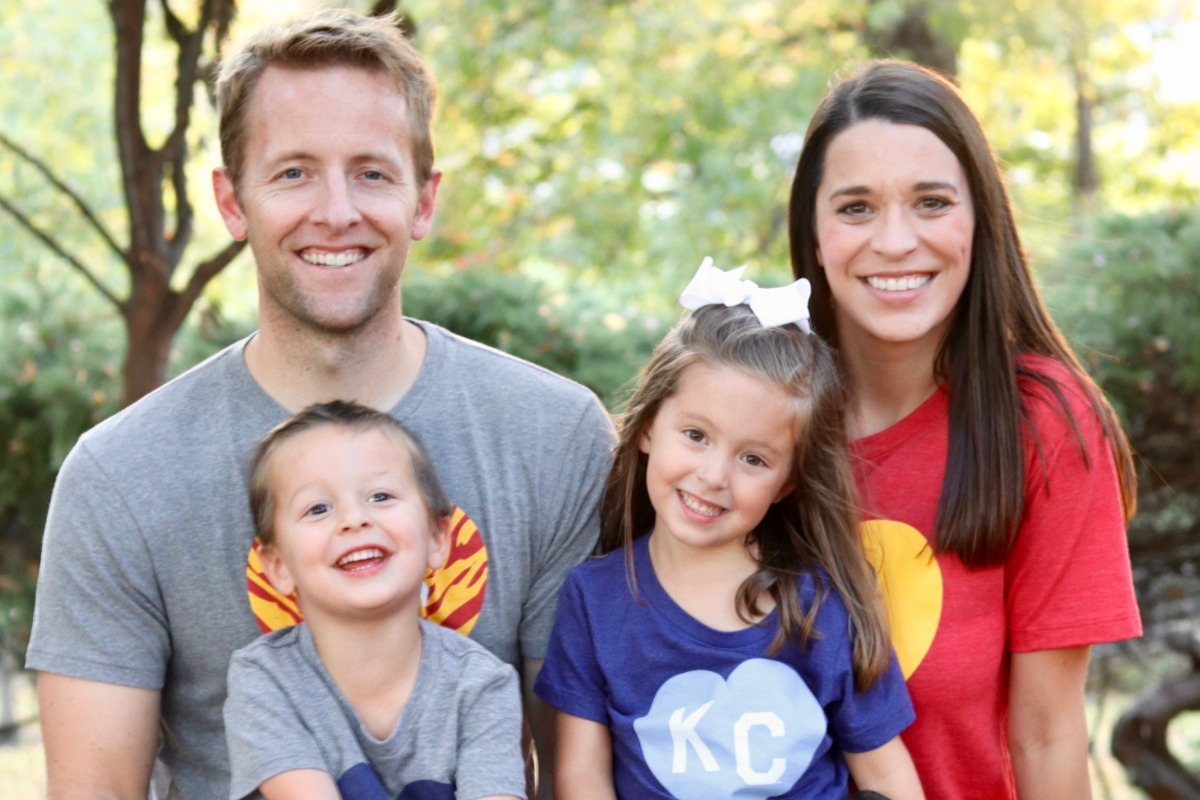
A Cure for Charlie
Tax deductible
Our Story
In August of 2019 we found out that our sweet, happy boy Charlie has a rare genetic disease... so rare, in fact, that it doesn’t even have a name. Right now, it is identified by the affected gene, SLC6A1. We had been searching for answers since he was only a few months old, as Charlie has been affected by tremors, possible seizures (that have now been confirmed as seizures), and delays in milestones - but even though we suspected something was wrong, this news has hit us really hard. While there have been only about 300 reported cases of SLC6A1 worldwide, some common symptoms of the disease have emerged... physical limitations, autism, ADHD, intellectual disabilities, speech delays or lack of speech, anxiety, behavior issues and debilitating epilepsy.
Charlie lights up our world, and he and his big sister Addie are the most important part of our lives. He loves hugs, balls, music, dancing, football, dogs, his dad, sometimes his mom, food and most of all his sister and family, and his life is just beginning. We have never felt a deeper pain than getting his diagnosis. Those who know us, know we are planners, and have planned everything around our kids and their future. When we received Charlie’s diagnosis, it was like Charlie’s entire future got ripped away from him. Looking into the face of our innocent, kind, loving boy - who is now only 7 years old - and knowing how difficult his life could be is just crushing.
However, there is hope. Almost immediately after the diagnosis we connected with Amber Freed, who is, in short, a rock star. Her boy Maxwell, who is 6 months older than Charlie, was diagnosed with SLC6A1 in the summer of 2018. Immediately after the diagnosis Amber quit her job and began tirelessly looking for a cure for this disease. With the medical and scientific team that Amber has assembled, we will develop a gene replacement therapy cure for Charlie and Maxwell. They are already testing a potential cure in mice and seeing promising results. But we're in a race against the clock because now that we know he is actively having seizures we fear that one could lead to regression and alter his life path forever.
Every dollar raised for SLC6A1 will go directly to the development of this cure. Although we need what seems like an overwhelming amount, if a lot of people come together and give a little, it could happen quickly. If just 300,000 people gave $10, we would succeed.
We are confident we will succeed, and this will be a footnote in Charlie’s story. Thanks for your support in giving our little guy a chance at the life he deserves.
#ACureForCharlie
FAQs
1) Is gene therapy proven?
Absolutely. If you'd like to see its curing ways in action, just google the drug Spinrazza for spinal muscular atrophy, Kymriah for acute lymphoblastic leukemia, or the clinical trial for giant axonal neuropathy. The key for all of these pediatric conditions is early treatment. Children are being given a second chance.
2) Does gene therapy for SLC6A1 help other, more common diseases?
A mutation in SLC6A1 causes a disruption in the chief inhibitory neurotransmitter known as GABA. GABA is directly linked with epilepsy, autism, schizophrenia as well as many other neurological disorders.
3) Is my donation tax-deductible?
Your donations are fully tax deductible as SLC6A1 Connect is a 501c3. The EIN is 83-1415567. If you made a donation over $250 you will receive via email, and anything less than $249, your credit card records are sufficient.
4) My employer matches donations. How can I make that happen?
Please submit your donation for a company match directly with your employer. Companies can then donate right on GoFundMe, or send checks for the match to the non-profit 501(c)(3) funding the research at the address below:
SLC6A1 Connect
Attn: Kimberly Fry
415 W. 68th Terrace
Kansas City, MO 64113
5) Is there a website?
Please sign up for newsletter updates on website to follow the cure's progress.
6) Where will proceeds go?
ALL proceeds go to fund SLC6A1 research, a non-profit 501(c)(3).
7) Why is this disease so rare?
The gene that causes this disease was discovered in 2015 and doctors didn't begin testing for the disease until late 2016. There are most likely thousands of people with this disease, but they don't know they have it. Part of our mission is to raise awareness so we can reach more patients.



Organizer
Kimberly Fry
Organizer
Kansas City, MO
SLC6A1 Connect
Beneficiary